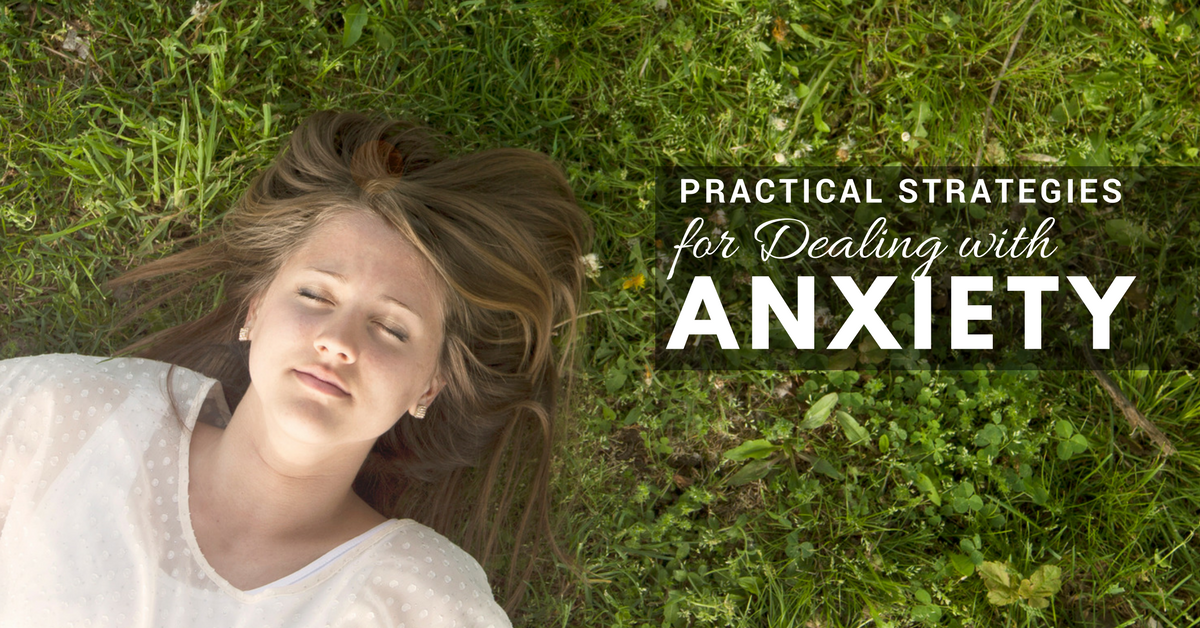|
This is a guest post by Mallory Pickering, a friend and fellow seminary alumnus of our director, Tres Adames. Mallory is currently serving as a hospice chaplain and bereavement coordinator in Flowood, Mississippi. Sometimes we feel anxious because we don’t see an end in sight to everyday demands. We experience stress because we aren’t sure how we will manage. It can be difficult to admit the fear of not being able to cope with the demands of life, much less take steps to address the anxiety. As anxiety is part of the human experience, these things are not meant to be cures, but tools. 1. Slow DownThink about the physiological and psychological impact of anxiety. The heart speeds up, the head races. We imagine negative situations and scan our brains to find possible ways to solve those worst-case scenarios in advance. We long to step into the future and exert the control needed to protect ourselves from pain or discomfort. We feel rushed to solve more and accomplish more. We think about getting through the next task and the next. We think anxiety will be relieved by achieving more—and sometimes it is. But not for the long-term. As counter-intuitive as it may seem, applying the brakes can be helpful when anxiety takes over. Slowing down is a way to reclaim your life and acknowledge your limits in a healthy way. When you’re anxious, take a breather. Put on the brakes and lean in. “You should sit in nature 20 minutes every day. Unless you are busy; then, you should sit for an hour.”--Zen saying 2. GroundingOne way to slow down is through a practice called “grounding.” The idea is to root yourself once again to the present time and place so that your preoccupation with the future diminishes. A helpful grounding technique is to awaken your senses one at a time. Press the pause button on your worry, and take a look around the room. What do you see? Close your eyes for a moment and focus your attention on the sounds around you. What do you hear? Now with your eyes remaining closed, focus on how your clothes feel against your body or on the temperature of the room. Have a peppermint and focus on its strong taste and smell. By reconnecting with your sensory experience of the world, you become aware of what’s actually happening and the “what-ifs” fade to the background 3. Thought Stopping Technique“Oh gosh. What if I don’t get [insert task] done?” “What if [insert person] doesn’t like me?” “What if nuclear war breaks out?” Nope. Cut it out. “What-if” questions are major time-wasters and stress-adders. Most of what we worry about doesn’t actually come to pass, and the mental energy we spend on worry could be better used in doing good to others and to ourselves. Tune in to your own internal dialogue. You will probably be surprised with how much of your thinking has to do with possibilities (and often negative ones) instead of concrete realities. When you practice stopping thoughts that contain negative possibilities, you’ll rob fear of its power. Learning to deal with what is right in front of you is your best chance at combatting anxiety. 4. The Next Right ThingThis has personally been one of the most helpful things for me when I’m experiencing overload. Instead of thinking about how to grapple with a hugely overwhelming situation or a major life change, ask yourself what to do next. What will you do with the next hour you are afforded? Make a list and a follow it. That way you are doing something productive to affect positive outcomes within the scope of power you do have. “Just do the next right thing, one thing at a time. That'll take you all the way Home.” -Glennon Doyle 5. SabbathJesus said, “The Sabbath was made for man, not man for the Sabbath.” (Mark 2:27) The Sabbath is a gift, and it’s one we need to reclaim, not in a legalistic way, but for the benefit of our human bodies, minds, and spirits. I try to make Sunday a day of rest and worship. Believe me, between the actual demands of life and our own self-created plans, the to-do list will never end on its own. We have to actively set aside time in our lives to recharge. Real rest is not about vegging out in front of the television. Sometimes we DO need something mindless to give ourselves a small break, but true Sabbath is about doing what gives you life. A good Sabbath may involve cooking or baking, writing or painting, getting outside, playing with your kids, and yes, a good Sunday nap. Also, taking a Sabbath rest doesn’t have to occur on a Sunday or Saturday. It’s not about the day of the week; it’s about carving out time for regenerative activities and self-care. Treat yourself to a mini-Sabbath every day if you can. We need margin and play in our busy lives.
Comments are closed.
|
Article Topics
All
Archives
July 2023
|
We're ready to help. Let's begin.
Peoria LocationInside State Farm
9299 W Olive Ave Ste 212 Peoria AZ 85345 |
Phoenix LocationInside CrossRoads UMC
7901 N Central Ave Phoenix AZ 85020 |
About |
Services |
EducationPrograms
ACPE Spiritual Care Specialist Pastoral Counseling Apprenticeship Deconstruction Course Free Grief Training Contact |
We're ready to help. Let's begin.
© 2024 Prism Counseling & Coaching. All Rights Reserved.
Christian DISC® is a registered trademark of Prism Counseling & Coaching.
Christian DISC® is a registered trademark of Prism Counseling & Coaching.


